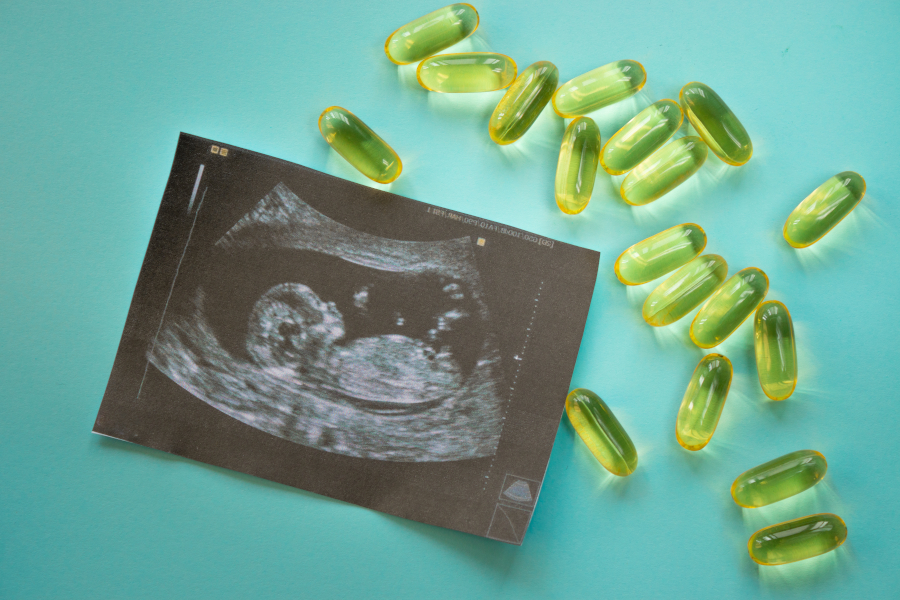Pregnancy is a fascinating and transformative time, marked by numerous physiological changes in the mother’s body. The key drivers behind these changes are hormones specific to pregnancy. In this article we will delve into the hormonal cascade that accompanies pregnancy and explore their profound impact on the body and emotions.
Pregnancy Hormones: The Players in the Game
Pregnancy involves a complex interplay of hormones, each with specific functions. A hormone is a protein manufactured in the body that regulates or controls the activity of distant cells or organs in the body. The hormone is released directly into the blood by specialized glands called endocrine glands. The hormone travels via the blood stream to a distant organ where it exerts its effect. Understanding these hormones is crucial for comprehending the physiological and emotional changes that occur during pregnancy. Here are some of the hormones produced during pregnancy:
- Human Chorionic Gonadotropin (hCG):
- This hormone is produced by the placenta. It is the substance that is detected during a positive pregnancy test. hCG stimulates the corpus luteum, located in the ovary, to produce progesterone.
- Progesterone:
- Progesterone stimulates the uterine lining, making it a suitable environment for the fertilized egg to implant itself and for the embryo and fetus to develop.
- Estrogen:
- Estrogen is primarily produced in the ovaries. It stimulates fetal organ development and placental function. It also stimulates maternal breast tissue in preparation for breastfeeding.
- Human Placental Lactogen (hPL):
- hPL is produced in the placenta and stimulates the breasts in anticipation of lactation. It also regulates glucose levels in the bloodstream to provide adequate nutrients to the fetus.
- Prolactin:
- Prolactin is synthesized in the pituitary gland in the brain. It is the hormone responsible for initiating milk production in the breasts.
- Oxytocin:
- Oxytocin is produced in the hypothalamus in the brain and is essential in producing uterine contractions during labor.
- Relaxin:
- Relaxin is a hormone produced in the ovary and placenta. It relaxes the uterine ligaments and softens and widens the cervix.

The Physical Impact of Pregnancy Hormones
These hormones orchestrate various physical changes throughout pregnancy, ensuring the baby’s well-being. Here’s a glimpse of their impact:
- Morning Sickness:
- hCG, often dubbed the “morning sickness hormone,” is believed to be a contributing factor to the nausea and vomiting experienced by many pregnant women during the first trimester.
- Breast Changes:
- Estrogen and progesterone stimulate the breasts in preparation for breastfeeding.
- Mood Swings:
- Hormonal fluctuations can lead to mood swings and emotional changes. These shifts are entirely normal during pregnancy.
- Uterine Growth:
- Progesterone stimulates the growth of blood vessels in the uterine lining and ensures an adequate blood supply to the developing fetus.
- Relaxation of Joints:
- Relaxin contributes to the relaxation of joints and ligaments in the pelvis, preparing the body for labor and childbirth.
- Weight Gain:
- The combined action of various hormones, including estrogen and hPL, can result in weight gain, particularly around the abdomen, thighs, and buttocks.
- Hair and Skin Changes:
- Hormonal shifts can impact the hair and skin, leading to hair loss or thinning, as well as changes in oil production that affect the skin.
- Increased Blood Volume:
- The body increases blood volume during pregnancy, largely due to the influence of hPL, ensuring that both the mother and baby receive adequate oxygen and nutrients.

Emotional Impact:
Pregnancy hormones do not just affect the body; they also play a significant role in the expectant mother’s emotional state. Mood swings, heightened emotions, and feelings of anxiety are common emotional responses to hormonal changes during pregnancy.
Pregnancy hormones are the orchestration behind the incredible journey of creating a new life. While they bring about physical changes in the body, they also play a significant role in the emotional aspects of pregnancy. Understanding these hormones and their impact can help expectant parents navigate the many transformations they experience during this time.
This information is presented as a general guide to present information on demystifying pregnancy hormones. It is for informational purposes only. The information provided is not intended to be the only information available about demystifying pregnancy hormones. The material provided is not expected to be a substitute for advice or information from your physician or health care provider.
If you have any questions, concerns, fears, apprehensions, unease, or worry about demystifying pregnancy hormones contact your health care provider immediately.



